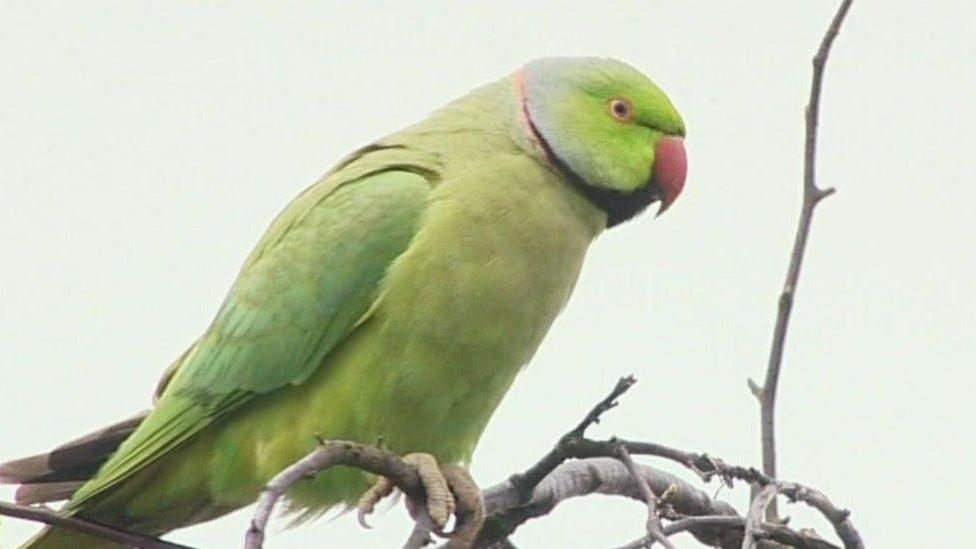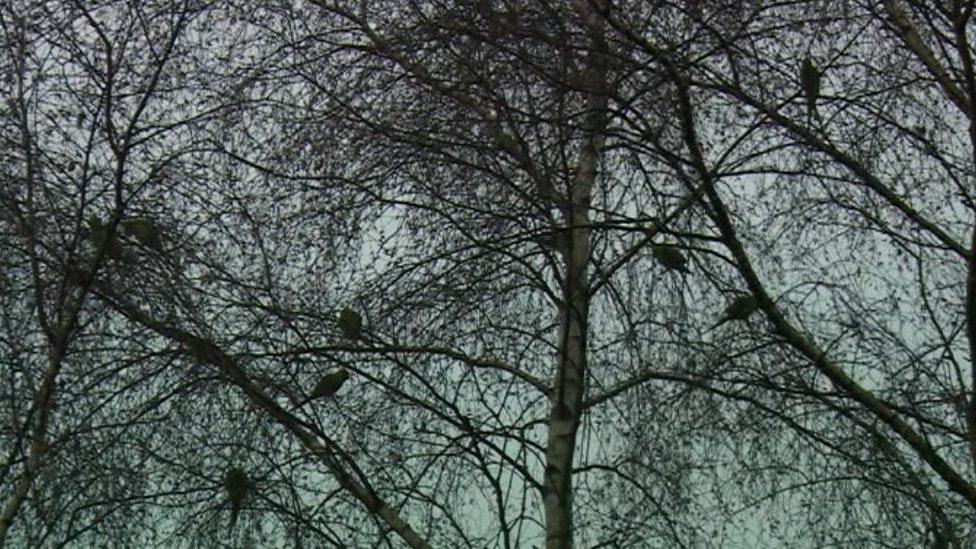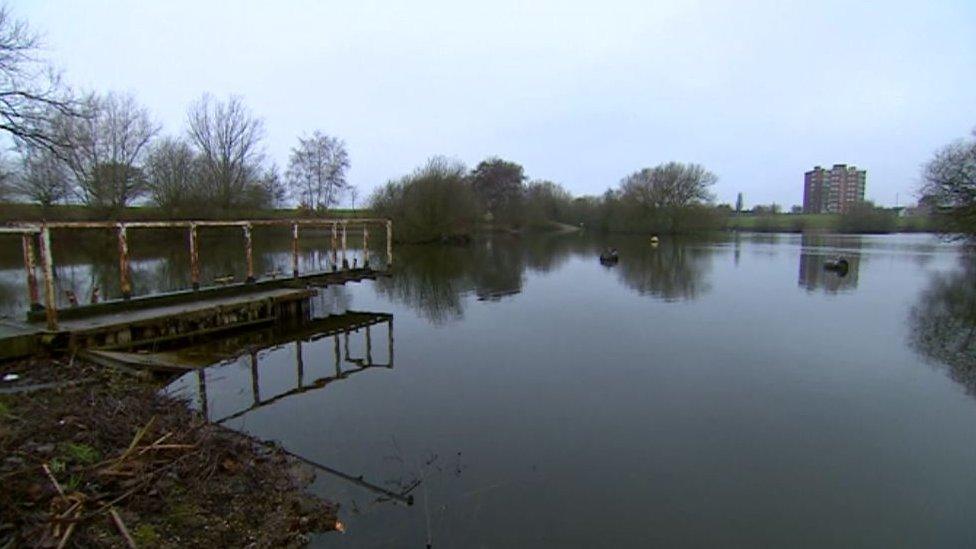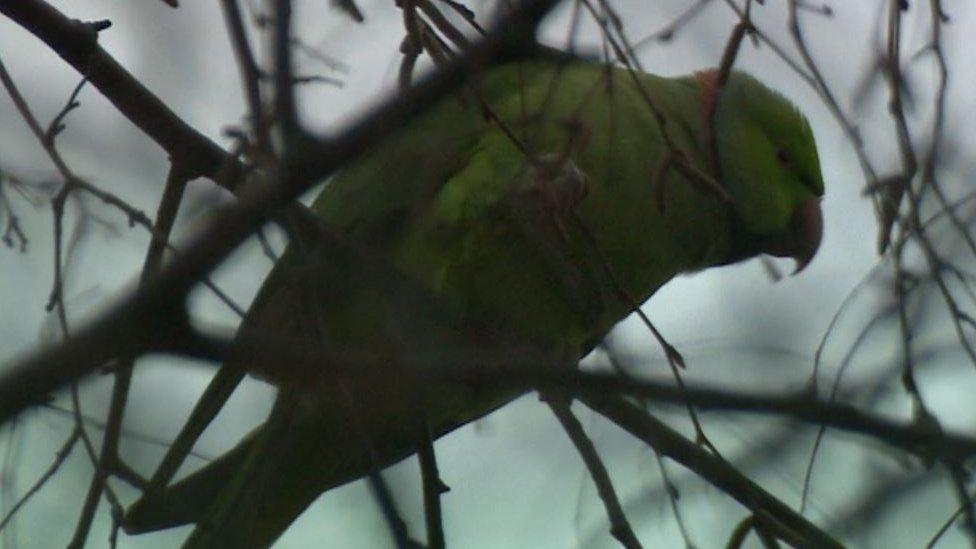Wild parakeets take roost in Birmingham's Shard End
- Published

Although native to Africa and Asia the parakeets are more than capable of surviving our winters
A few years ago I was at a friend's barbecue in South London. Suddenly over the sizzle of the sausages I heard an extraordinary noise and a flock of about sixty bright-green birds flew squawking overhead.
Ring necked parakeets, our only naturalised parrot. In the South East large flocks of parakeets are now a common sight as escaped birds have formed breeding colonies. And now it seems they are spreading to the Midlands.
I've managed to capture one or two on camera in the past and we've even carried out DNA analysis of dropped feathers. This revealed the birds in the Midlands are made up of parakeets moving up from the South East with the odd escaped pet.

As it gets dark the birds gather in the trees around the lake
But then Kevin Whiston, external got in touch to tell us about a flock of parakeets he'd been watching in Shard End in Birmingham.
Apparently over the last 12 months the population of 24 parakeets have almost doubled. If we could catch them on camera this would easily be the biggest parakeet flock in the Midlands we've ever seen.

This lake in Shard End is home to a large flock of ring necked parakeets
So we met Kevin in Shard End and went for a walk around the lake. Plenty of familiar British birdlife and then that loud squawking as two ring necked parakeets flew over our heads. After about half an hour the trees around the lake filled up with parrots. All noisily squawking and chattering, a brilliant green against the slate grey January skies.
Eventually by around half past four around 40 or so birds had flown out to a small island in the centre of the lake to roost. It was a wonderful sight, easily exceeding my expectations. But Kevin told me while he watches the birds many people in the park walk right under them without even noticing them.

Even at dusk on a grey January day their green plumage stands out
They may technically be an invasive species but like all wild birds the parakeets are protected. And while there is some thought they might one day cause issues for native birds so far the RSPB, external doesn't think they are a problem. If anything they can be a brightly coloured introduction to the joys of bird watching and a cheerful addition to a garden bird feeder.
Of course there may be bigger flocks out there, so if you know of an even bigger roost we'd really like to hear from you.